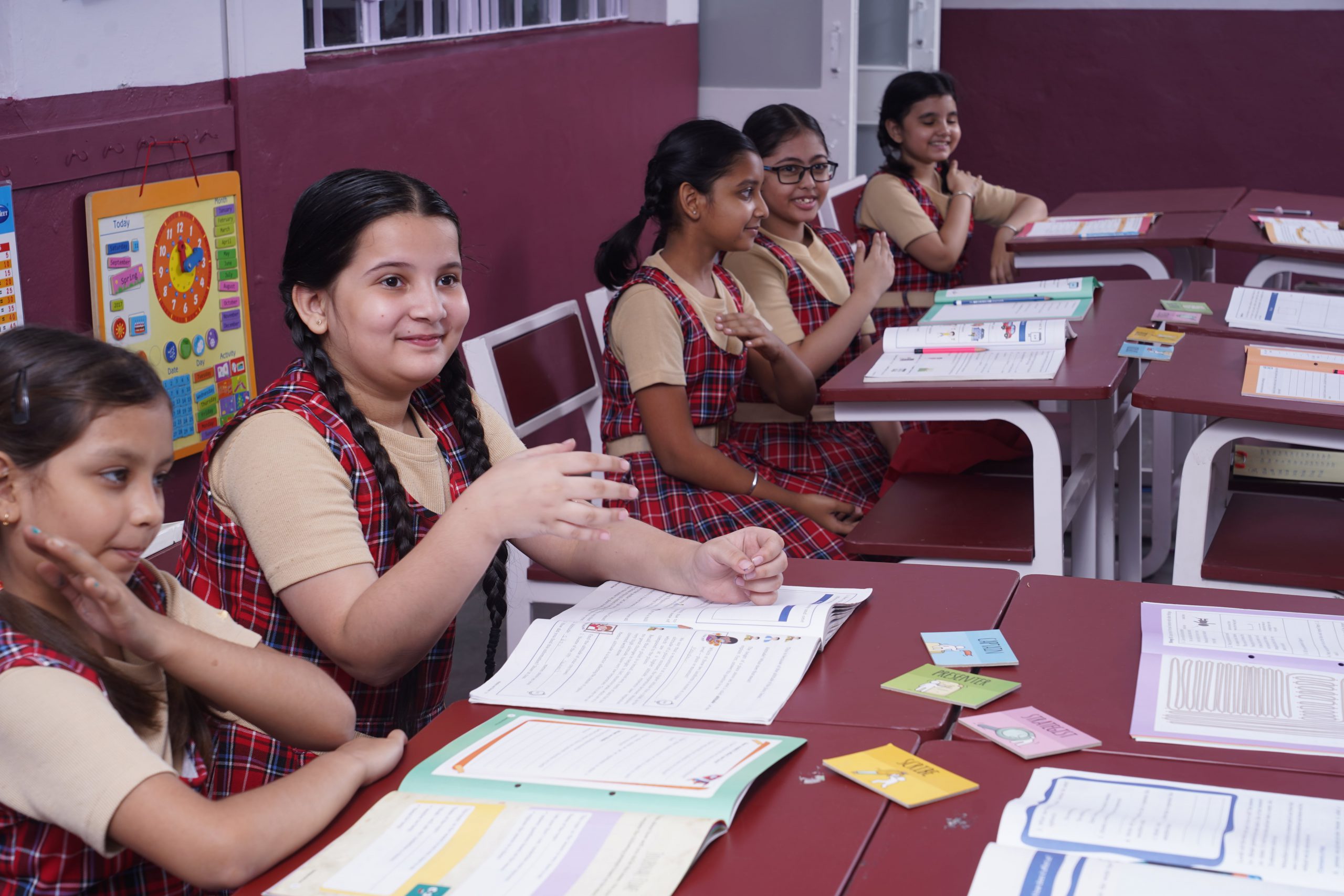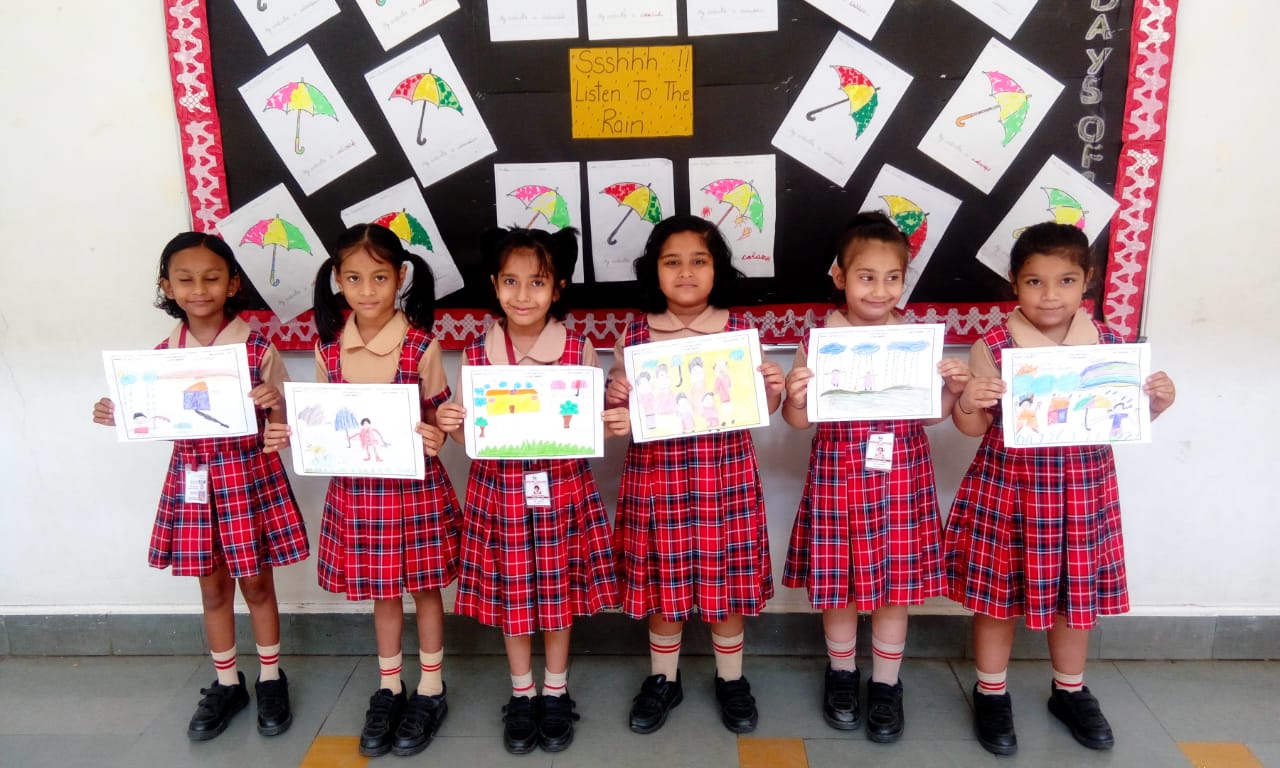Primary Wing
Moving from the kindergarten classes, children are exposed to a joyful environment to help gain knowledge and give opportunities to learners to adapt, enquire, analyse, and collaborate. The age group here starts from six to eleven years comprising of classes 1 to 5.
Overview
Moving from the kindergarten classes, children are exposed to a joyful environment to help gain knowledge and give opportunities to learners to adapt, enquire, analyse, and collaborate. The age group here starts from six to eleven years comprising of classes 1 to 5.
Discovering novel ways to find solutions, learning is achieved by involving children in different age appropriate and peer activities based on logical reasoning, conceptualizing and cognition.Speaking skills and continued reading and writing skills are focused upon in a friendly and accommodating environment. Opportunities through inter class, intra class and house events hone these skills



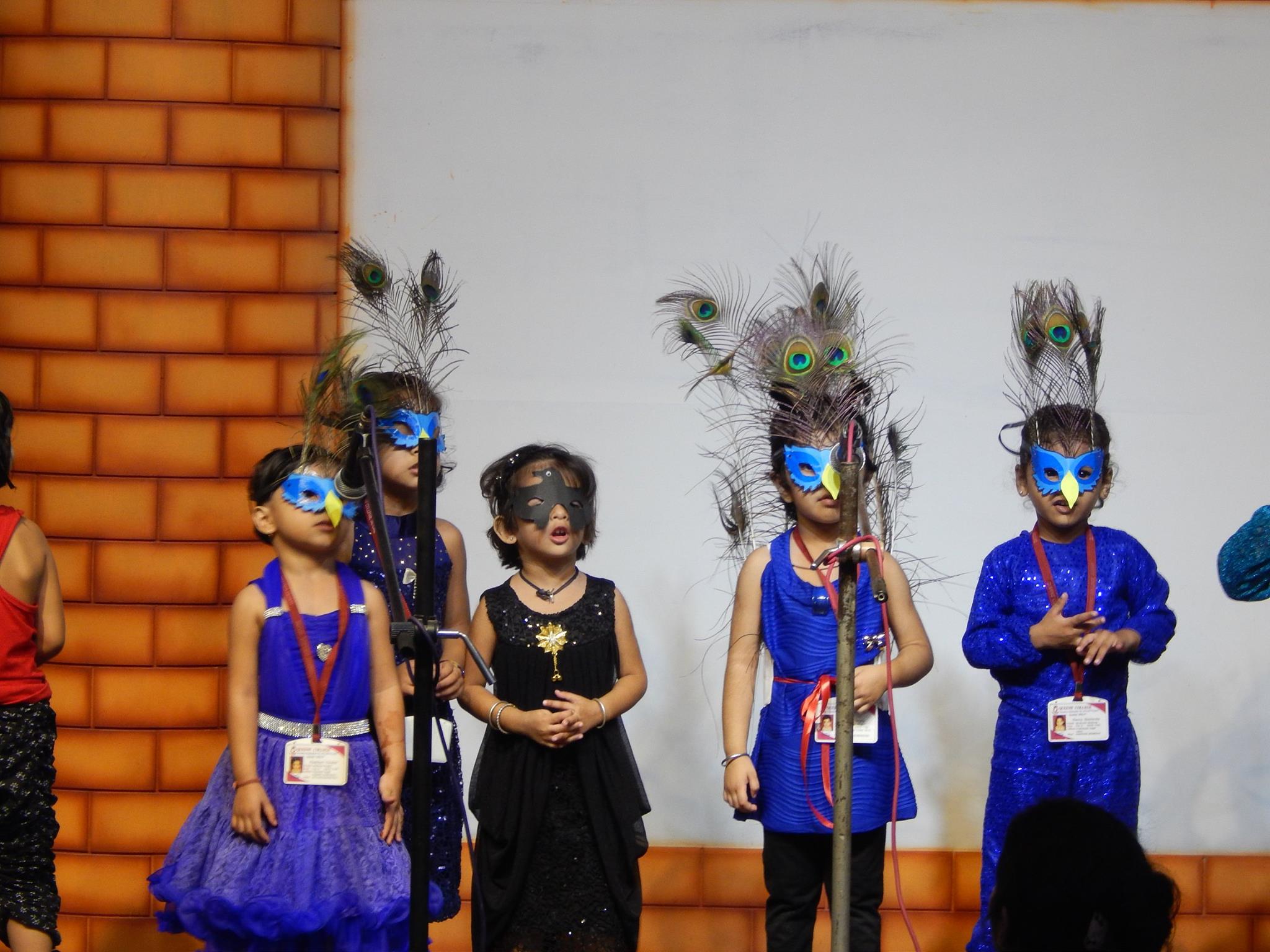
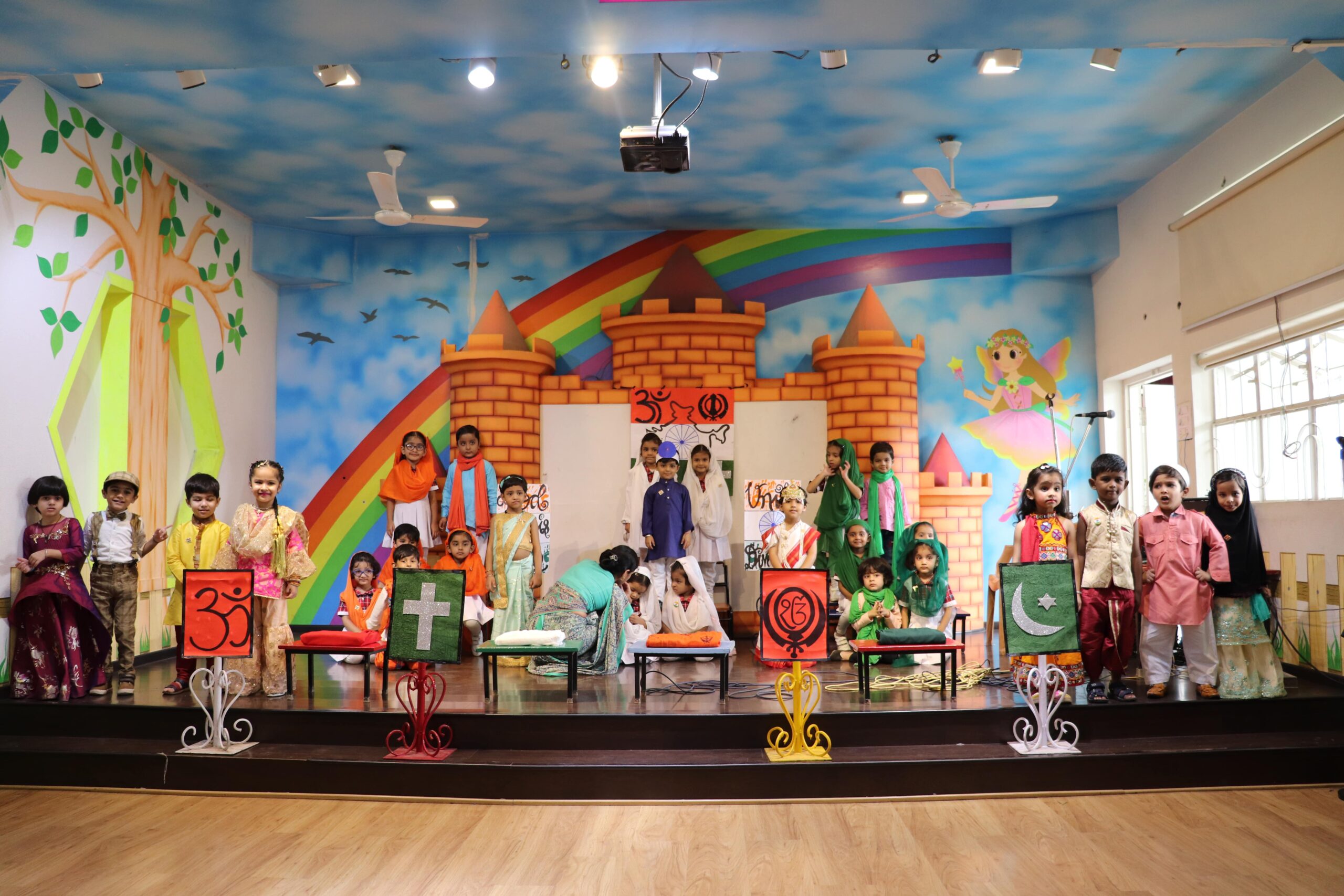
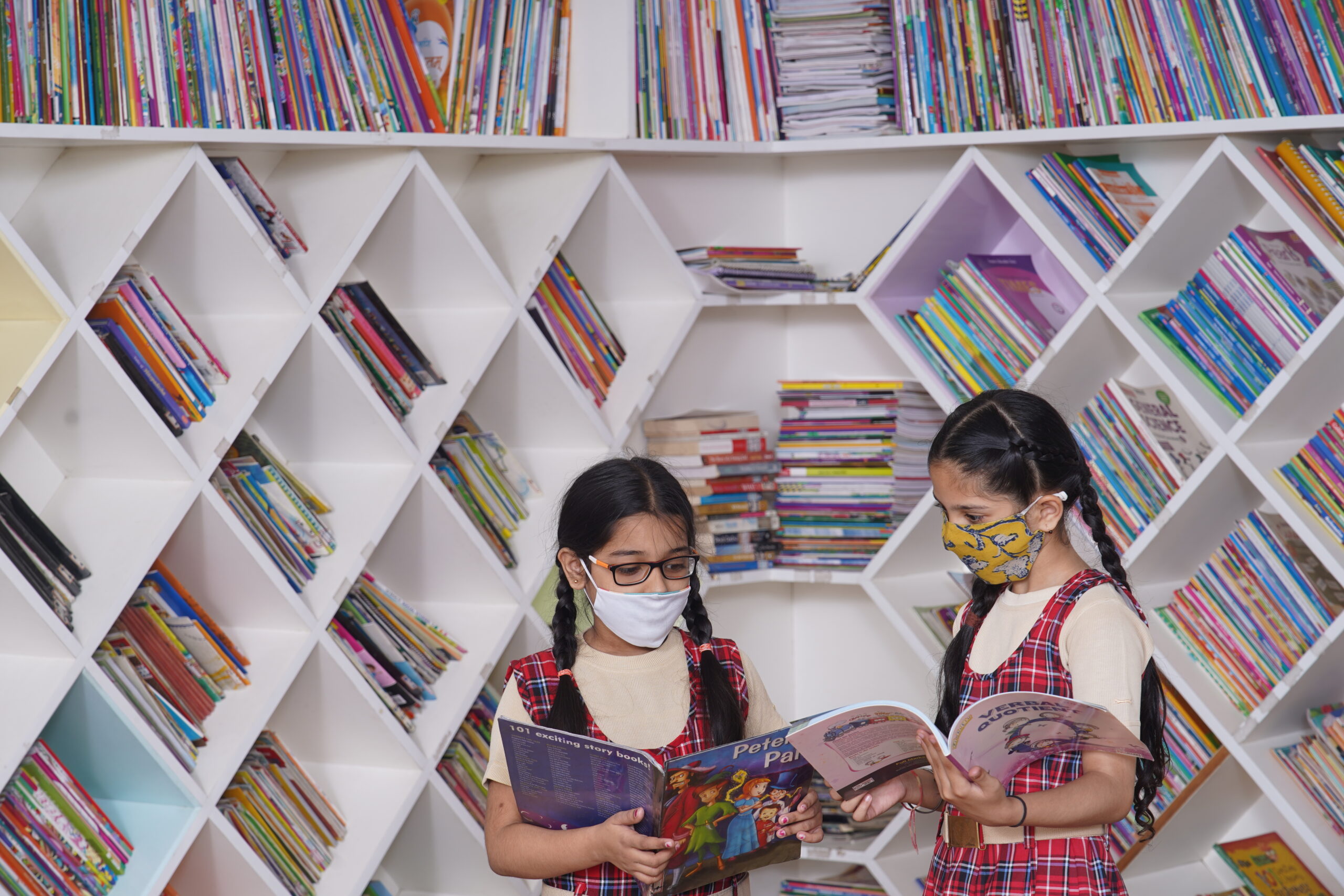
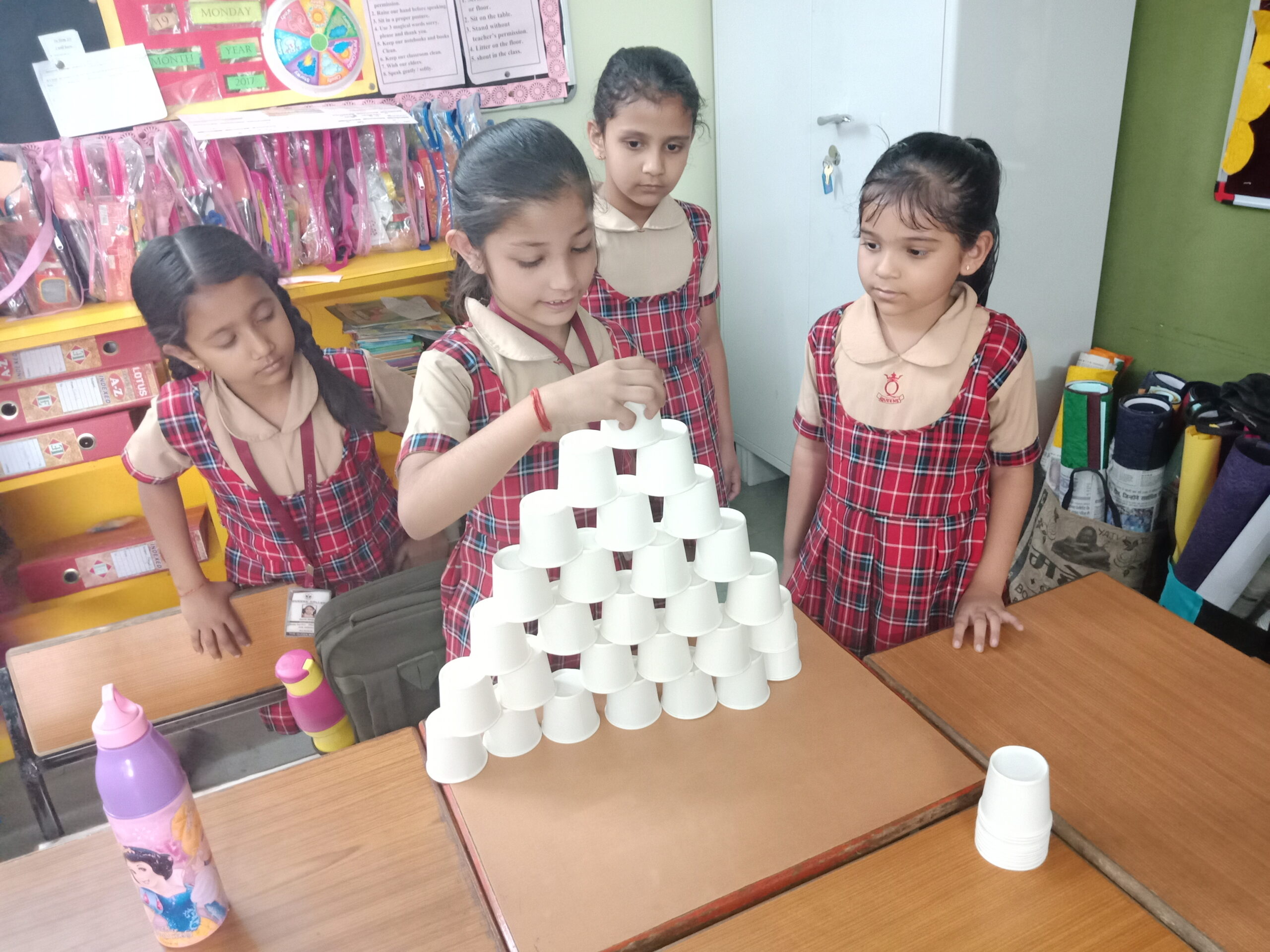
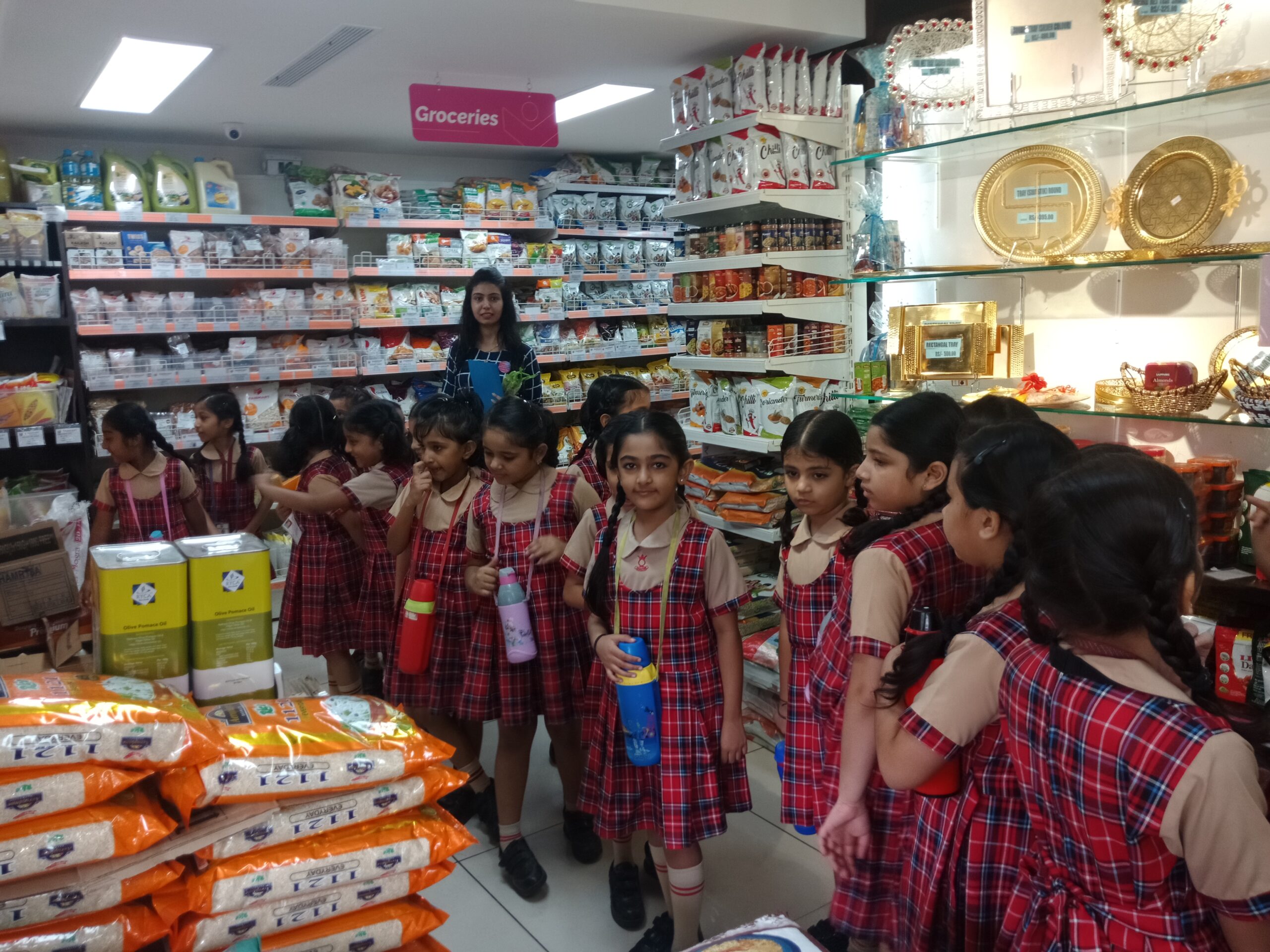
Learning & Teaching strategy
Robust and holistic teaching learning activities are planned for these formative years. The lesson plans are designed in a way to lead students from basic examples that they are already familiar with and move towards delivering newer concepts.
Children are motivated to think about their own learning, which enhances metacognitive skills. The curriculum also promotes cooperative learning and gives students opportunities to work collaboratively, work faster and learn proficiently.They have better retention, feeling positive about their learning experience and simultaneously acquire essential interpersonal life skills. Scientific temper, Mathematic skills, Language skills, Environmental awareness are all honed through hands on activities, experiments, and connections to real life. The school celebrates diversity by encouraging students to help each other and value differences of opinions shared by their companions. Various teaching tools like role play, assembly presentations, group songs, public speaking prove to be effective in helping students clarify attitudes and ideologies and make connections between abstract perceptions and the real world.
The events and celebrations are well incorporated with the curriculum to help students understand and imbibe various social and emotional values guiding them to become lifelong learners.
Assessment
A well-designed assessment provides clear information about student’s learning and feedback. Various tools are used for assessments that include verbal interactions, orals, pen paper tests, projects, classroom activities, reading and discussions. Extensive inter class and intra class activities amongst other provide opportunities for teachers to asses formative skills like social development, interaction skills, cooperation, and emotional development. Evaluation is also done duringon-going classes. Recitation, reading programs, creative writing and other internal events are incorporated for assessing different skills. Summative assessment includes two tests and two terms examinations. Individual portfolios continued to be maintained for every child adding all the details that help in reference for providing necessary interventions.
Feedback is given to the parents minimum eight times a year and suggestions are given through collective or individual parent teacher meetings.

